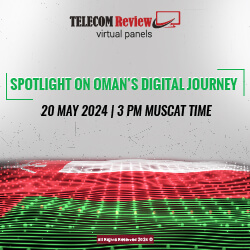Telecom companies are at the center of every nation’s economic prosperity and social stability, especially in light of today’s digital transformation sweeping across industries.
As such, it becomes binding upon telcos to invest in cutting-edge telecom infrastructure to offer services that are aligned with the respective government’s vision for accelerating digitalization and innovation. Some of the latest fiber optics and advanced 5G communication solutions are set to transform organizations, industries and homes that are capable of operating in a smart, sustainable and advanced digital ecosystem, which will be the hallmark of modern living.
Here are some tools that must be part of any competitive telco’s offerings in addition to its connectivity services:
Wi-Fi 6E: The Wi-Fi 6 technology brings the benefits of higher data rates, increased capacity, improved power efficiency and better performance in environments with multiple connected devices. “The opening of the 6 GHz band for Wi-Fi represents the largest expansion of Wi-Fi spectrum to date, enabling a dramatic increase in bandwidth and reduction of latency and paving the way for entirely new classes of applications connecting over Wi-Fi,” notes Bart Giordano, senior VP, RUCKUS Networks at CommScope.
For instance, CommScope’s RUCKUS Wi-Fi 6E solutions are being used for capacity increase, performance improvement and reduced interference of the 6 GHz spectrum. With up to 8.35 Gbps aggregated max throughput, Wi-Fi 6E supports next-generation applications such as augmented reality and virtual reality (AR/VR), 8K ultra-high-definition video and gaming. The provisioning of the Wi-Fi 6E connectivity means tapping into the potential of markets such as the MENA gaming market, which is projected to exceed $5 billion by 2025, up 19% on 2019 figures, according to the latest market report by RedSeer.
Analytics Tool: Unless an organization is hands-on in its network activities, it will not be in a position to streamline its operations profitably. Telecom analytics can help CSPs improve their profitability, redefine the customer experience and facilitate efficiency by providing insights on a plethora of metrics, including competitive offers and plans (designing attractive offers during peak shopping hours), understanding user patterns, developing bundle services, analyzing root causes, detecting anomalies, etc., and ultimately achieving smarter networks and extended network functionality.
Data Protection and Cybersecurity: Telecom companies can incur significant expenses if cybercriminals manage to hack into their networks and expose their customer data. In recent news, US telecom company T-Mobile announced that a recent hack impacted 37 million of its customers' data. Last year, T-Mobile had to pay a whopping $350 million to settle lawsuits after a hacking episode affected the data of 76.6 million US residents. Considering today’s advancing technology, cybersecurity is an absolute necessity for businesses, especially with the remote working culture and ongoing digital transformation. Experts have underscored a recent global study that shows that cyber fundamentals fail to exist in certain organizations and processes, causing major security and financial challenges. “To reap the immense rewards of the digital economy, we need to pioneer an integrated and innovative smart secured services ecosystem,” states Dr. Bushra Al Blooshi, Dubai Electronic Security Center’s (DESC) head of research and innovation. “By collaborating on this aim, I believe communities and countries will always grow by making technologies in their own countries and exporting to others,” he explains. End-to-end encryption and a zero-trust architecture supported by AI/ML features are the prerequisites of all modern network operations.
Automation: The principle driving automation is minimizing repetition and maximizing productivity. Thanks to artificial intelligence and machine learning, a lot of that has been made possible in managing networks and IT operations. From mundane tasks of collation and data collection to automating everyday human decisions, automation in ICT has indeed come a long way. However, a Nokia report titled “Prioritizing automation: Creating a successful building block strategy,” details that less than 10% of operators surveyed reported being fully automated in any single network or service domain. The majority of operators indicate they are still in the mid-stages of automation, with a mix of automated and manual processes. The report shows that operators on average have automated around 40% of processes within single-domain use cases (intra-process automation), while very few have achieved automation that spans multiple domains (inter-process automation). “To meet the growing acceleration and proliferation of customer demands, operators need to move towards a highly automated, efficient network that can support agile service innovation and delivery on top, with new ecosystems and partners,” states the report.
Championing a Sustainable Future: Compliance with the environmental, social and governance (ESG) strategies has become increasingly important for telcos to better highlight the sustainability of the respective company to its investors, customers and employees. Network operators are increasingly investing in environment-related issues. For instance, e& (formerly known as Etisalat Group) reaffirmed its ESG commitments by joining the World Economic Forum's (WEF) Stakeholder Capitalism Metrics, associating with more than 100 global companies that are aligning their performance reporting with ESG indicators and consistently tracking their contributions to the UN’s Sustainable Development Goals (SDGs). Such initiatives by leading “techo” companies, including e&, become all the more significant since it is estimated that temperatures in the MENA region could increase by as much as four degrees by 2050; some cities in the region are feared to become potentially uninhabitable by the end of the century. In this sobering context, businesses in the region can minimize the effects of global warming by adopting climate-friendly practices, setting up KPIs, generating public awareness and supporting government initiatives. Moreover, as network service providers, telcos can play a significant role in helping other sectors transition to a greener digital economy.
Robust Charging Capabilities: The charging and billing section of the telecom business is perhaps one of the most contentious. Hair-pulling arguments over billing and charging errors between staff and customers are not uncommon and can detract from the company’s ideal public image. To support customer-centric business operations and digital engagement, operators need to invest in a billing platform that is agile and intuitive to process all the modern transactions, nowadays done primarily via mobile. Flexible real-time billing solutions will ensure improved customer experiences for the ever-growing subscriber base while also assisting in bringing about efficient network improvements to drive 5G monetization. In the past, traditional telco billing normally included talk-time minutes or the number of messages sent; this model has significantly changed as telcos have now become more versatile in their service offerings, prompting an evolution in monetization tactics. “Monetization systems should allow service providers to capture every revenue opportunity in the new 5G economy,” says Jonah Pransky, head of digital portfolio PLM, Nokia Digital Business at Nokia.
To this end, Nokia’s latest converged charging system offers online and offline charging to address new and emerging 5G monetization use cases. The charging function (CHF), introduced by 3GPP, collects all network and service usage data, allowing for prompt and accurate payments and enabling CSPs to create new services and offers and quickly roll them out to consumers.
As the world pushes toward a fully digitized economy, telcos must ramp up their digital efforts at every opportunity to improve their business processes and enhance the ever-important customer experience. With such efforts, the telco sector can best ensure its future profitability as a business model.










